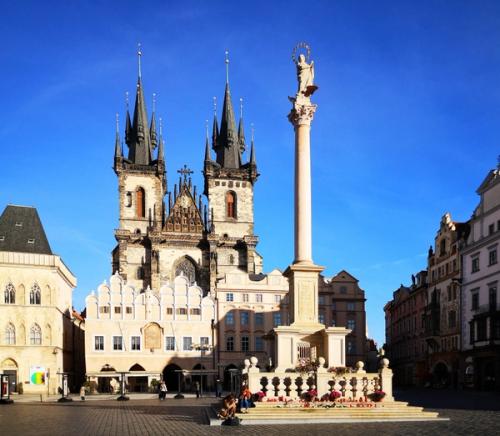
- Series editors
Rudolf Kučera, Director of the MIA CAS
Martin Klečacký, Deputy Director for Research, MIA CAS
Dagmar Hájková, Head of the Department for Modern Social and Cultural History, MIA CAS- Geographical Scope
- Central and Eastern Europe, Habsburg and post-Habsburg space
- Chronological Scope
- 19th and 20th centuries
- Advisory Board
Mark Cornwall, Professor, School of Humanities, University of Southampton, Great Britain
Monika Baár, Professor, Department of History, European University Institute, Firenze, Italy
Peter Becker, Professor, Universität Wien, Austria
Borut Klabjan, Associate Professor, Institute for Historical Studies, Slovenia
Börries Kuzmany, Associate Professor, Department for East European History, Universität Wien, Austria
Denisa Nečasová, Associate Professor, Department of History, Masaryk University, Brno, Czech Republic
Michal Frankl, Department for the Modern Social and Cultural History, Masaryk Institute of the Czech Academy of Sciences, Prague
Benjamin Frommer, Associate Professor, History Department, Northwestern University, Weinberg College of Arts and Sciences, USA
Márkus Keller, Associate Professor, Faculty of Social Sciences, Loránd University, Budapest, Hungary
Veronika Pehe, Institute of Contemporary History of the Czech Academy of Sciences, Prague, Czech Republic
Keely Stauter-Halsted, Professor, Liberal Arts and Sciences, department of History, University of Illinois, USA- Keywords
- Memory; Habsburg; post-Habsburg; transformation; centre; periphery; violence; humanitarianism
Politics, Culture and Transitions: MIA CAS Studies on Modern Central and Eastern Europe
Leaning on the strengths of the Masaryk Institute and Archives of the Czech Academy of Sciences (MIA CAS), the series focuses on the period of the 19th and 20th centuries. The books in the series will explore the multifaceted history of Central and Eastern Europe, a region often characterised by both confrontation and conflict. This multinational space offers a unique opportunity to examine the impact of both revolutionary and gradual transformative processes on its inhabitants at various levels.
The thematic focus of the series reflects the Institute's research priorities. The series will examine issues of identity and loyalty and their memory, the changing meanings of centre and periphery and borders, and the interconnectedness of violence, protest, and humanitarianism in the Habsburg and post-Habsburg space. This geographical focus provides a wide scope for comparison at the level of monarchy, individual countries, and successor states. In addition, it will raise questions about state functionality and the construction of unity. The series is intended for scholars engaged in research on subjects pertaining to the politics of memory, legitimacy, state functionality, political culture, cultural history, social history and the history of migration.
